Memoization Using Auxiliary Symbol
The memoization technique exhibited in the question can be modified so that the definitions of g and h do not need to be re-established whenever the cache needs to be cleared. The idea is to store the memoized values on an auxiliary symbol instead of directly on g and h:
g[0,k_] = 0;
g[t_,0] = e;
g[t_,k_] := memo[g, t, k] /. _memo :> (memo[g, t, k] = g[t-1,k]*a+h[t-1,k-1]*b)
h[0,k_] = 0;
h[t_,0] = f;
h[t_,k_] := memo[h, t, k] /. _memo :> (memo[h, t, k] = h[t-1,k]*c+g[t-1,k-1]*d)
The definitions are essentially the same as the original memoized versions of g and h except that a new symbol, memo, has been introduced. With these definitions in place, the cache can be cleared simply using Clear@memo -- there is no need to redefine g and h anew. Better still, the cache can be localized by placing memo in Block, thus:
Block[{memo, a = 7, b = 9, c = 13, d = 0.002, e = 2, f = 1}
, Table[g[t, k], {t, 0, 100}, {k, 0, 100}]
]
The cache is discarded when the block is exited.
Memoization Using Advice
The original and revised memoization techniques required invasive changes within the function g and h. Sometimes, it is convenient to introduce memoization after the fact. One way to do this would be to use the technique of advising -- a kind of functional programming analog to subclassing in OO programming. A particular implementation of function advice appears regularly in the pages of StackOverflow. However, that technique is also invasive. Let's consider an alternate technique of adding advice to g and h without altering their global definitions.
The trick will be to temporarily redefine g and h within a Block. The redefinitions will first check the cache for the result and, failing that, call the original definitions from outside the block. Let's go back to the original definitions of g and h that are blissfully unaware of memoization:
g[0,k_]:=0
g[t_,0]:=e
g[t_,k_]:=g[t-1,k]*a+h[t-1,k-1]*b
h[0,k_]:=0
h[t_,0]:=f
h[t_,k_]:=h[t-1,k]*c+g[t-1,k-1]*d
The basic schema for this technique looks like this:
Module[{gg, hh}
, copyDownValues[g, gg]
; copyDownValues[h, hh]
; Block[{g, h}
, m:g[a___] := m = gg[a]
; m:h[a___] := m = hh[a]
; (* ... do something with g and h ... *)
]
]
The temporary symbols gg and hh are introduced to hold the original definitions of g and h. Then g and h are locally rebound to new caching definitions that delegate to the original definitions as necessary. Here is definition of copyDownValues:
ClearAll@copyDownValues
copyDownValues[from_Symbol, to_Symbol] :=
DownValues[to] =
Replace[
DownValues[from]
, (Verbatim[HoldPattern][from[a___]] :> d_) :> (HoldPattern[to[a]] :> d)
, {1}
]
In an effort to keep this post short(er), this "copy" function is concerned only with down-values. A general advice facility also needs to account for up-values, subvalues, symbol attributes and so on.
This general pattern is easy, if tedious, to automate. The following macro function memoize does this, presented with little comment:
ClearAll@memoize
SetAttributes[memoize, HoldRest]
memoize[symbols:{_Symbol..}, body_] :=
Module[{pairs, copy, define, cdv, sd, s, m, a}
, pairs = Rule[#, Unique[#, Temporary]]& /@ symbols
; copy = pairs /. (f_ -> t_) :> cdv[f, t]
; define = pairs /. (f_ -> t_) :> (m: f[a___]) ~sd~ (m ~s~ t[a])
; With[{ temps = pairs[[All, 2]]
, setup1 = Sequence @@ copy
, setup2 = Sequence @@ define }
, Hold[Module[temps, setup1; Block[symbols, setup2; body]]] /.
{ cdv -> copyDownValues, s -> Set, sd -> SetDelayed }
] // ReleaseHold
]
After much ado, we are now in a position to externally impose memoization upon the non-caching versions of g and h:
memoize[{g, h}
, Block[{a = 7, b = 9, c = 13, d = .002, e = 2, f = 1}
, Table[g[t, k], {t, 0, 100}, {k, 0, 100}]
]
]
Putting it all together, we can now create a responsive Manipulate block:
Manipulate[
memoize[{g, h}
, Table[g[t, k], {t, 0, tMax}, {k, 0, kMax}] //
ListPlot3D[#, InterpolationOrder -> 0, PlotRange -> All, Mesh -> None] &
]
, {{tMax, 10}, 5, 25}
, {{kMax, 10}, 5, 25}
, {{a, 7}, 0, 20}
, {{b, 9}, 0, 20}
, {{c, 13}, 0, 20}
, {{d, 0.002}, 0, 20}
, {{e, 2}, 0, 20}
, {{f, 1}, 0, 20}
, LocalizeVariables -> False
, TrackedSymbols -> All
]

The LocalizeVariables and TrackedSymbols options are artifacts of the dependencies that g and h have on the global symbols a through f.
